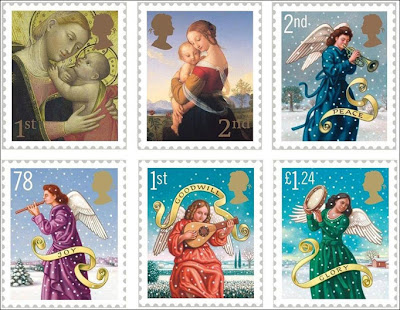If George W.Bush prays for guidance on invading Iraq, I want to know that. If (as we now know) Mr Blair would regularly choose biblical texts to contemplate in Downing Street, I want to know that. If a Cabinet minister whose government must take decisions on abortion, or homosexuality, or contraception, or embryo research, belongs to Opus Dei, I want to know that. And if a party leader is an unbeliever, a convinced Christian voter should equally want to know that too.
Following the admission earlier this week by the LibDem's newly-selected leader Nick Clegg that he does not believe in God, Matthew Parris claims in the
Times that only two prime ministers in two centuries have been strong Christians.
I'm not sure that I accept all the unspoken assumptions that underlie his analysis and, if anything, would sense a parting of the ways between secular belief and reason (rather than between faith and reason), but I suspect we would all, believers and unbelievers, agree with his desire for greater "honest clarity" in our politicians.
Parris is also right that "in a political leader religious faith is not simply personal." Contrary to what some secularists would have us believe,
of course religious belief significantly influences a person's outlook on how society should be structured — just as lack of belief in a creator God and moral absolutes significantly influences the worldview of those who ascribe to the faith of the atheist or humanist. And yet, though we might hope that our elected representatives would "stand up and be counted," I think we all know that's not going to happen.
For one thing, our party machines do not like their members to think freely, let alone express any opinions considered off-message. Prospective candidates unwilling to reign in their personal idiosyncracies tend not to succeed [the likes of Boris Johnson are the exceptions that prove the rule] which is why, to quote one former MP, the upcoming generation of MPs "all look and sound like clones of each other." As is evident from any dictatorship around the world, "honest clarity" often loses out to sheep-like obedience when career prospects are at stake.
For another thing, as long as bureaucracy in our country remains "simply too big and ramshackle to function properly" and our "ministers are trammelled by EU treaties, ineptness and institutional inertia" (as the
Telegraph puts it today, explaining why it is Gordon Brown appears to be in control of so very little), what our politicians think and say will make very little difference anyway. Consequently, faith in our increasingly eroded parliamentary democracy will continue to decline — unless our MPs heed the Telegraph's advice: "Put yourselves back in control. Seize power from the gentlemen in Whitehall and Brussels. Scrap the quangos. Abrogate the human rights codes. Make yourselves once again a sovereign Parliament."
Sadly, I fear that anyone waiting for that to happen might just as well believe in Father Christmas...


![Jamia Mosque in Gillingham [Credit: BBC]](http://newsimg.bbc.co.uk/media/images/42672000/jpg/_42672781_jamia_mosque203.jpg)
![Thousands of Buddhist monks marching in defiance of Burma's oppressive military regime [Credit: TIME]](http://img.timeinc.net/time/daily/2007/0709/monks_burma_0919.jpg)
 I don't usually do obituaries or tributes, but since a precedent was set (
I don't usually do obituaries or tributes, but since a precedent was set (
